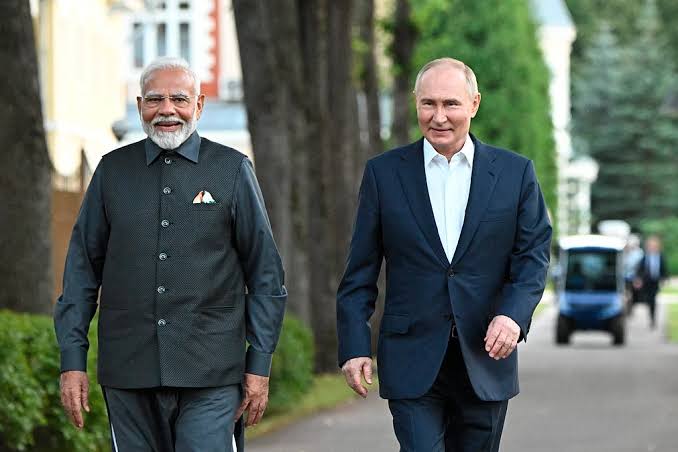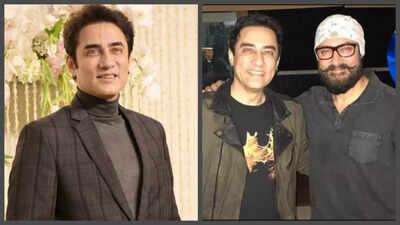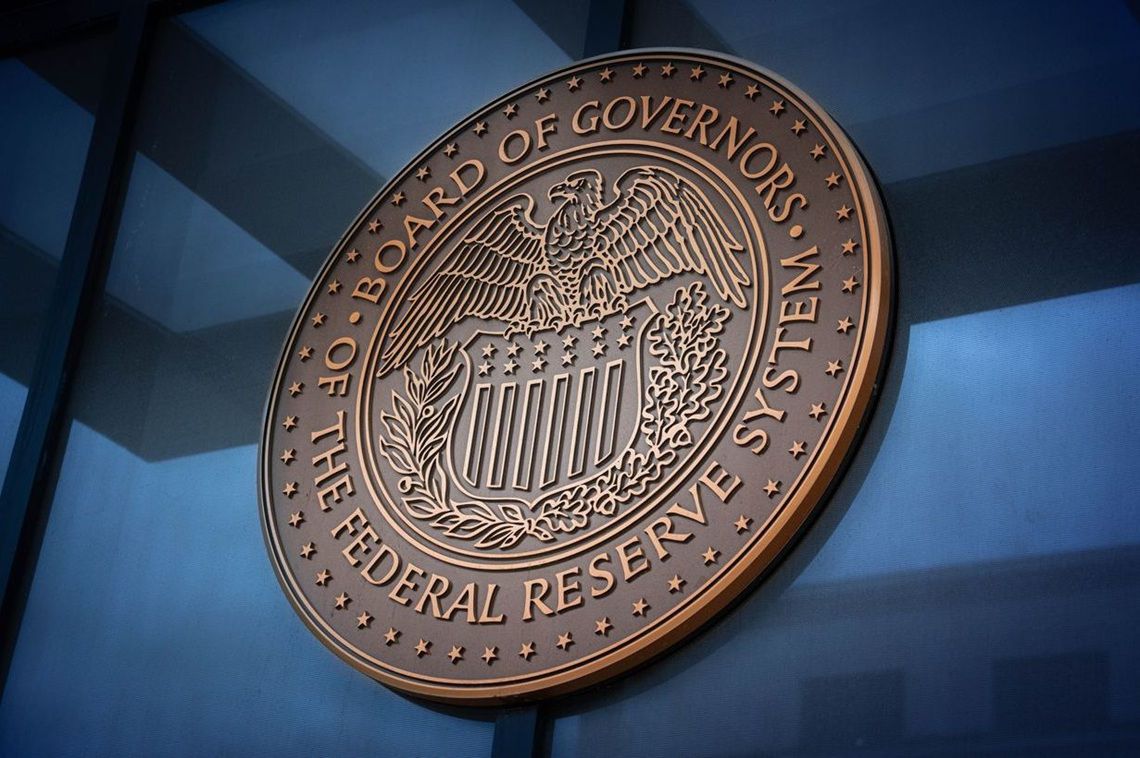 Image Source: The New Indian Express
Image Source: The New Indian Express
India’s diplomatic landscape saw an assertive move on Friday, August 8, 2025, as Prime Minister Narendra Modi publicly announced his invitation to Russian President Vladimir Putin to visit India later this year for the highly anticipated 23rd Annual Bilateral Summit. This announcement, delivered after a detailed phone conversation between the two leaders, signals a firm commitment to deepening the robust India-Russia partnership at a time of increased friction in global trade and geopolitics.
An Eventful Exchange: Modi and Putin’s Phone Call
Prime Minister Modi revealed, in a post on X (formerly Twitter), that his dialogue with President Putin covered a gamut of pivotal subjects. These included recent developments in the protracted Ukraine conflict, progress in the India-Russia bilateral agenda, and the future trajectory of their strategic relationship.
Key highlights from the conversation:
-
President Putin briefed Prime Minister Modi on the latest ground realities of the Ukraine war, offering Russia’s perspective on an evolving crisis.
-
Modi reiterated India’s consistent call for a peaceful resolution through dialogue and diplomacy, steadfastly opposing escalation in the conflict.
-
Both leaders reviewed advances in joint projects and areas of cooperation, reaffirming commitment to the India-Russia Special and Privileged Strategic Partnership—a relationship rooted in mutual trust, strategic convergence, and a history of time-tested understanding.
Backdrop of Global Trade Turmoil
The significance of this phone call and imminent summit is magnified by current tensions with the United States. President Donald Trump’s administration recently imposed severe tariffs—up to 50%—on Indian exports in retaliation for India’s continued purchases of Russian oil. This has led to vocal assertions from Indian leadership about defending national and farmer interests at any cost, with Modi emphasizing India’s refusal to compromise in the face of external pressure.
Recent tariff measures targeting India’s booming trade in Russian energy have not only stirred diplomatic unease but have also inadvertently drawn Moscow and New Delhi closer. The US efforts to shrink its trade deficit have prompted India to strengthen its partnership with Russia, as reflected in the Indian government’s criticism of such external pressures as unjustified and unfair.
Diplomatic Developments
The conversation between Modi and Putin came just a day after India’s National Security Advisor, Ajit Kumar Doval, met with President Putin at the Kremlin. Doval confirmed that planning for Putin’s India visit is nearly complete, describing the annual summit as a watershed moment for the countries’ diplomatic ties.
Other major themes of the exchange include:
The annual bilateral summit, a fixture in India-Russia diplomatic engagement, is set to explore fresh avenues for cooperation—in fields such as defense, energy, and technology—despite relentless Western scrutiny.
Russia reaffirmed solidarity with India on its right to choose trading partners, rejecting calls to sever bilateral ties as illegitimate and counterproductive.
Strategic Implications
India’s stance on Russia, even as it furthers cooperation with Western allies in spheres like the Quad (US, Japan, Australia), showcases its multidimensional approach to foreign policy. While China continues to benefit from cheaper energy imports due to US tariffs, India’s balancing act underscores a diplomatic agility that could reshape the strategic equilibrium in South Asia.
Looking Ahead
The upcoming Putin visit is expected to reinforce the historical camaraderie and strategic depth of India-Russia relations, which have endured shifting global alliances and geopolitical turbulence. As the date for the summit nears, the world will watch closely how New Delhi leverages its unique position amid rising great-power competition.
Source: ANI, Times of India, Hindustan Times, Rising Kashmir, NDTV, Indian Express, NewsOnAir, Tribune India, Deccan Herald, and the official statement from the Prime Minister’s Office and Ministry of External Affairs.
Source: ANI, Times of India, Hindustan Times, Rising Kashmir, NDTV, Indian Express, NewsOnAir, Tribune India, Deccan Herald, and the official statement from the Prime Minister’s Office and Ministry of External Affairs.India’s diplomatic landscape saw an assertive move on Friday, August 8, 2025, as Prime Minister Narendra Modi publicly announced his invitation to Russian President Vladimir Putin to visit India later this year for the highly anticipated 23rd Annual Bilateral Summit. This announcement, delivered after a detailed phone conversation between the two leaders, signals a firm commitment to deepening the robust India-Russia partnership at a time of increased friction in global trade and geopolitics.
An Eventful Exchange: Modi and Putin’s Phone Call
Prime Minister Modi revealed, in a post on X (formerly Twitter), that his dialogue with President Putin covered a gamut of pivotal subjects. These included recent developments in the protracted Ukraine conflict, progress in the India-Russia bilateral agenda, and the future trajectory of their strategic relationship.
Key highlights from the conversation:
President Putin briefed Prime Minister Modi on the latest ground realities of the Ukraine war, offering Russia’s perspective on an evolving crisis.
Modi reiterated India’s consistent call for a peaceful resolution through dialogue and diplomacy, steadfastly opposing escalation in the conflict.
Both leaders reviewed advances in joint projects and areas of cooperation, reaffirming commitment to the India-Russia Special and Privileged Strategic Partnership—a relationship rooted in mutual trust, strategic convergence, and a history of time-tested understanding.
Backdrop of Global Trade Turmoil
The significance of this phone call and imminent summit is magnified by current tensions with the United States. President Donald Trump’s administration recently imposed severe tariffs—up to 50%—on Indian exports in retaliation for India’s continued purchases of Russian oil. This has led to vocal assertions from Indian leadership about defending national and farmer interests at any cost, with Modi emphasizing India’s refusal to compromise in the face of external pressure.
Recent tariff measures targeting India’s booming trade in Russian energy have not only stirred diplomatic unease but have also inadvertently drawn Moscow and New Delhi closer. The US efforts to shrink its trade deficit have prompted India to strengthen its partnership with Russia, as reflected in the Indian government’s criticism of such external pressures as unjustified and unfair.
Diplomatic Developments
The conversation between Modi and Putin came just a day after India’s National Security Advisor, Ajit Kumar Doval, met with President Putin at the Kremlin. Doval confirmed that planning for Putin’s India visit is nearly complete, describing the annual summit as a watershed moment for the countries’ diplomatic ties.
Other major themes of the exchange include:
The annual bilateral summit, a fixture in India-Russia diplomatic engagement, is set to explore fresh avenues for cooperation—in fields such as defense, energy, and technology—despite relentless Western scrutiny.
Russia reaffirmed solidarity with India on its right to choose trading partners, rejecting calls to sever bilateral ties as illegitimate and counterproductive.
Strategic Implications
India’s stance on Russia, even as it furthers cooperation with Western allies in spheres like the Quad (US, Japan, Australia), showcases its multidimensional approach to foreign policy. While China continues to benefit from cheaper energy imports due to US tariffs, India’s balancing act underscores a diplomatic agility that could reshape the strategic equilibrium in South Asia.
Looking Ahead
The upcoming Putin visit is expected to reinforce the historical camaraderie and strategic depth of India-Russia relations, which have endured shifting global alliances and geopolitical turbulence. As the date for the summit nears, the world will watch closely how New Delhi leverages its unique position amid rising great-power competition.
Source: ANI, Times of India, Hindustan Times, Rising Kashmir, NDTV, Indian Express, NewsOnAir, Tribune India, Deccan Herald, and the official statement from the Prime Minister’s Office and Ministry of External Affairs.
Advertisement
Advertisement




